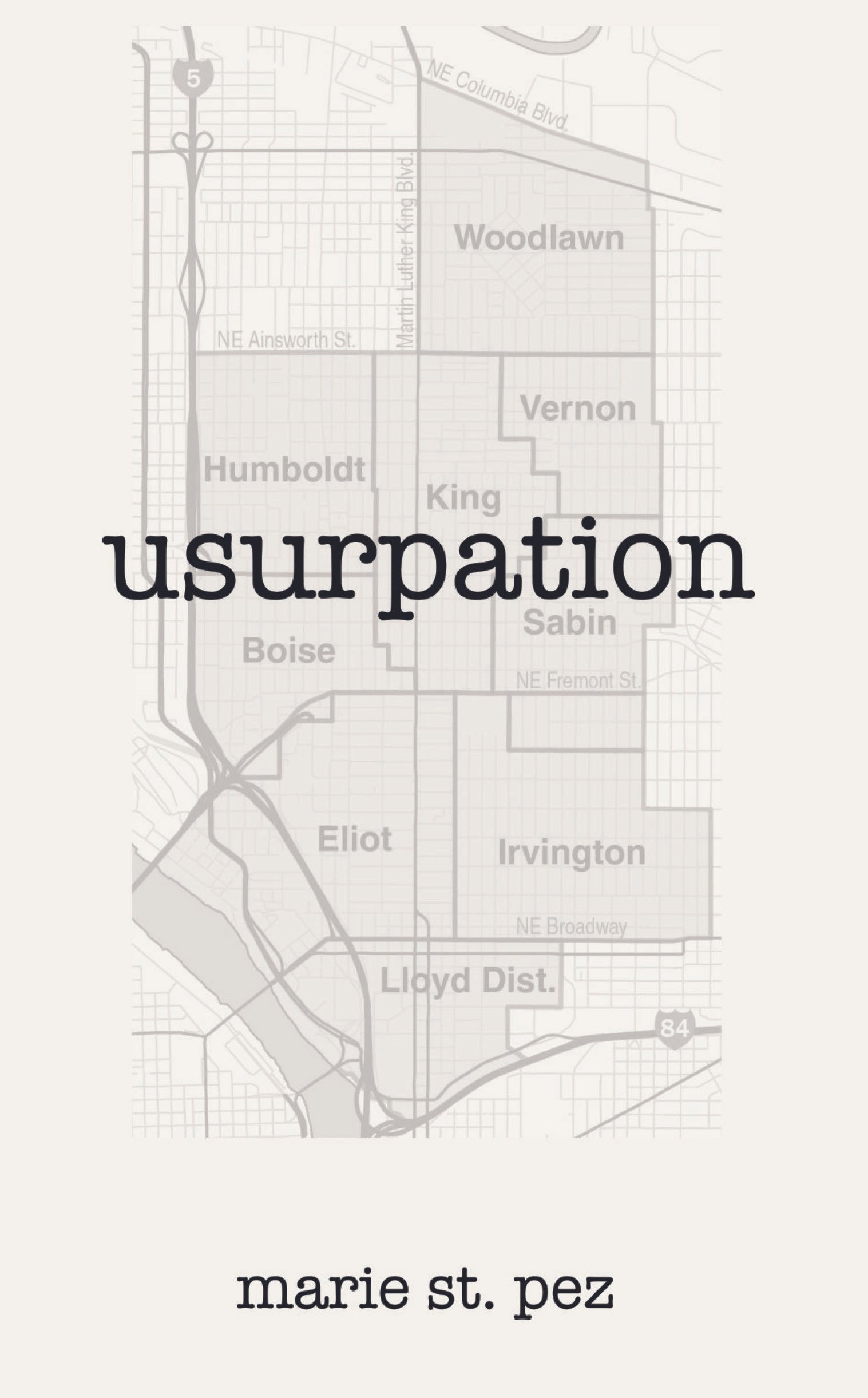 Image 1 of
Image 1 of


Usurpation
When her best friend's son is murdered, Kitty Feliz uncovers a racist scheme involving drug gangs, police corruption and gentrification through the deliberate blighting of Black communities.
Spanning two cities-Portland, Oregon, and New Orleans-Usurpation tells an emotional story of hardship and redemptive love through the lives of two families, and through the eyes of Kitty, whose experiences and musings as a Black lesbian lyrically link the personal with the political, the heart with the mind.
When her best friend's son is murdered, Kitty Feliz uncovers a racist scheme involving drug gangs, police corruption and gentrification through the deliberate blighting of Black communities.
Spanning two cities-Portland, Oregon, and New Orleans-Usurpation tells an emotional story of hardship and redemptive love through the lives of two families, and through the eyes of Kitty, whose experiences and musings as a Black lesbian lyrically link the personal with the political, the heart with the mind.
When her best friend's son is murdered, Kitty Feliz uncovers a racist scheme involving drug gangs, police corruption and gentrification through the deliberate blighting of Black communities.
Spanning two cities-Portland, Oregon, and New Orleans-Usurpation tells an emotional story of hardship and redemptive love through the lives of two families, and through the eyes of Kitty, whose experiences and musings as a Black lesbian lyrically link the personal with the political, the heart with the mind.
About the Author:
Marie St. Pez is the nom de plume of a long-time writer of essays, short stories, investigative articles, and political blogs. Currently living in Vermont, she lived in New Orleans and Portland, Oregon, during the 1990s and witnessed the impact of urban renewal schemes on Black communities in both cities and the origins of gentrification throughout Portland's historically Black district, Albina.With Usurpation, St. Pez tells the story of those early days of gentrification through the eyes and lives of two extended families, and through the musings of the novel's historian protagonist, Kitty Feliz. As a lesbian whose father was Black and mother White, Kitty's experiences living between worlds and her outsider status as a feminist atheist lend a unique, deeply emotional perspective that connects the personal to the political, the past to the present.
